Work tripscan be fun. The company pays for your flight, books the hotel room, and rents you a car. But they’re not so fun for the people who have to arrange them and calculate all the costs. The company always wants the costs to be as little as possible, but the workers still needadequate accommodationand transport. The planners often find themselves between a rock and a hard place.
A few years back, the Redditor u/ayako-chan sharedher storyof planning a work trip for her company’s technicians. As it was a last-minute trip, the initial costs were around $35,000. However, the financial department thought the sum was too high and demanded changes. Read on and see how much the author’s malicious compliance ended up costing the company.
Business trips can be costly for companies, so it’s no surprise some of them tend to skimp on the expenses

Image credits:JESHOOTS.COM (not the actual photo)
This company came to regret their decision to ask for reduced work trip costs

Image credits:Tima Miroshnichenko (not the actual photo)
Image source:ayako-chan
People who plan work trips have to take many things into consideration

Image credits:Gustavo Fring (not the actual photo)
What is the average sum for a business trip in the U.S.? According toItilite, domestic trips can cost around $990, while international work trips might even end up costing somewhere around $2,525.The World Bankreports that the U.S. spent $322.42 billion on business travel expenses in 2021.
The OP already mentioned the main expenses for the trip: accommodation,plane tickets, and ground transportation. However, there are several other things that trip planners have to take into consideration. There are meals, insurance, and incidental expenses.
Some companies also take into account ‘bleisure.’ That’s a term that combines “business” and “leisure.” Sometimes, employees opt to extend their work trips to spend some time sightseeing, relaxing, or engaging in recreational activities. The company policy for this differs as well. Some companies cover expenses related only to business.
The last category is miscellaneous expenses. Sounds quite vague, doesn’t it? Well, it’s things like baggage fees, charges for internet and communication, parking fees, laundry and dry cleaning, office supplies, and business-related printing and copying.
What companies shouldn’t do when trying to reduce business trip expenses

Image credits:AlphaTradeZone (not the actual photo)
Brussels-based business travel expense solutions companyMobileXpencelists the two things OP’s company did in this case as their don’ts. Avoiding last-minute bookings and forcing people to share a hotel room are a big no-no, according to them.
While booking flights and accommodation last minute might’ve been inevitable in this case, booking hotel rooms that the employees will have to share is far from ideal. “After a long day of travel, everyone deserves some privacy and space to unwind. Plus, it’s important to prioritize your employees’ comfort and well-being over cost savings,” MobileXpence writes.
Public orshared transportation(like the two cars instead of three in this story) is also an option.CMAC Groupwrites that the same goes for accommodation as well. Consider alternatives to traditional hotels, like Airbnb or serviced apartments.
Some netizens wanted to know more about the situation, and the OP was happy to answer questions
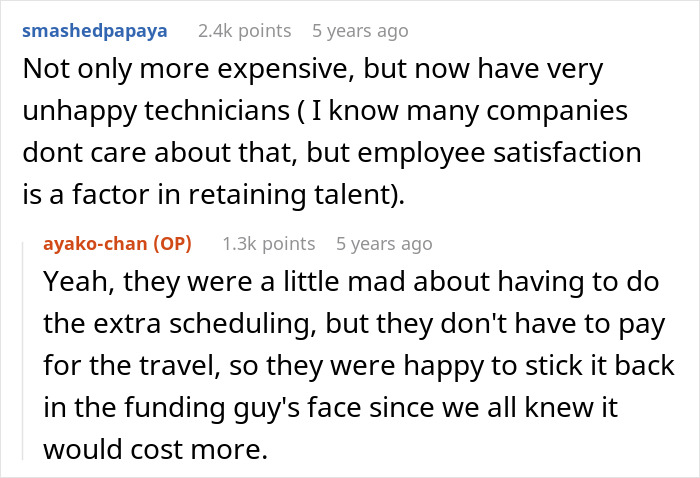
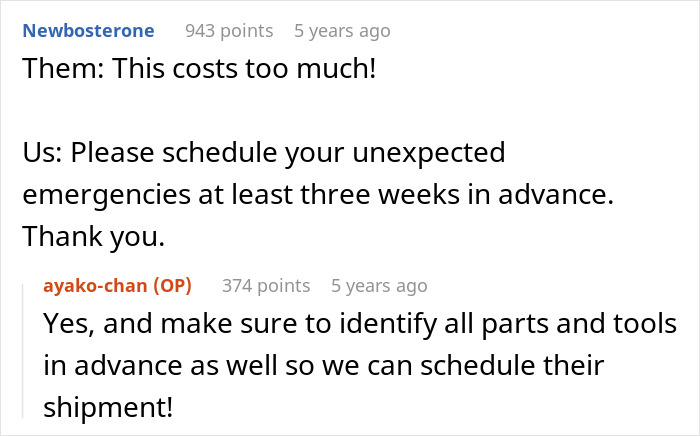

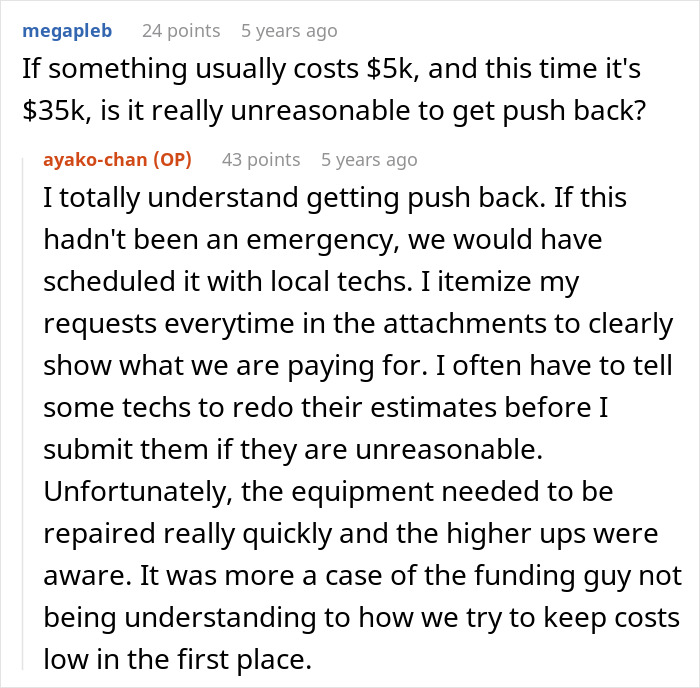
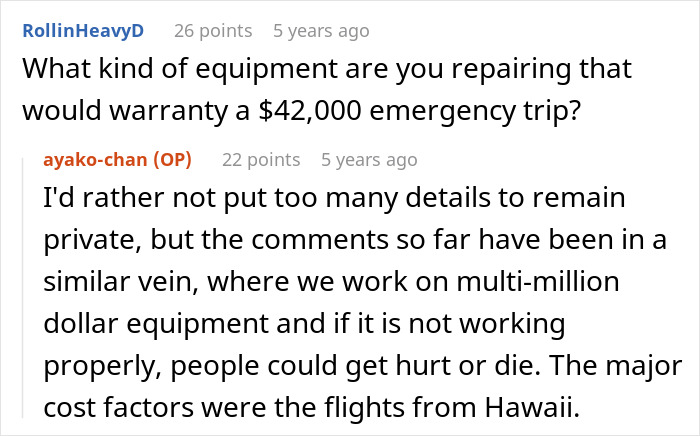

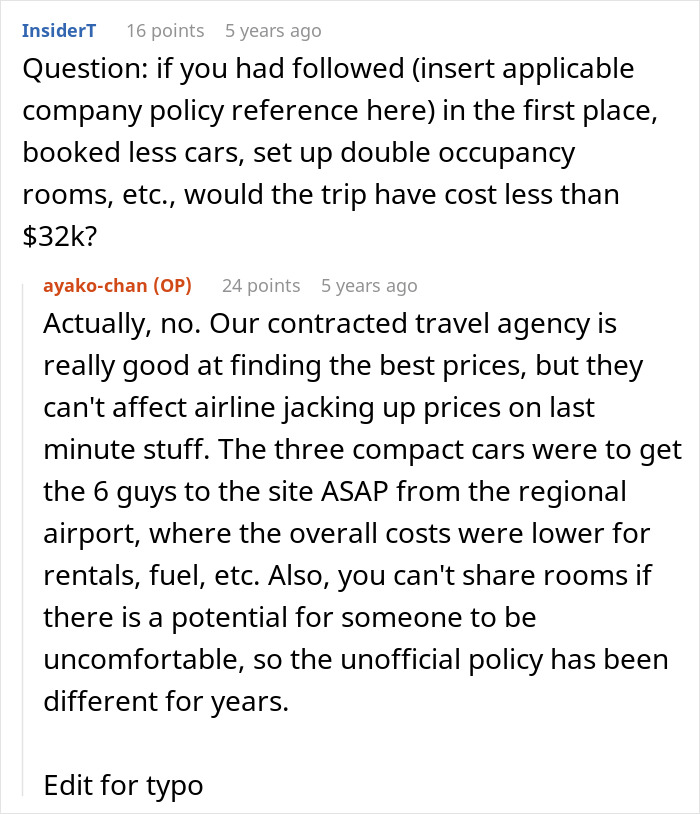
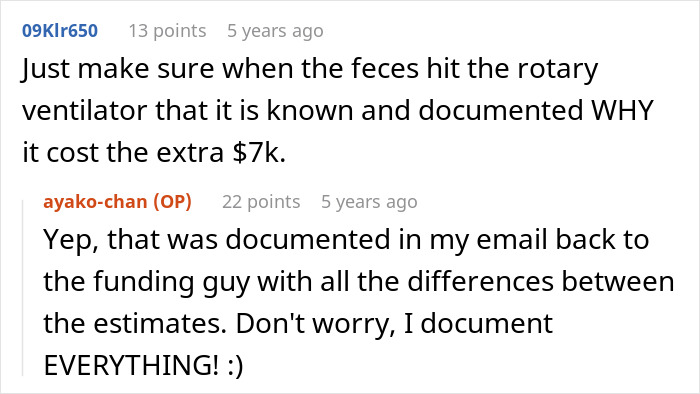
Commenters blamed the company and shared similar unpleasant experiences



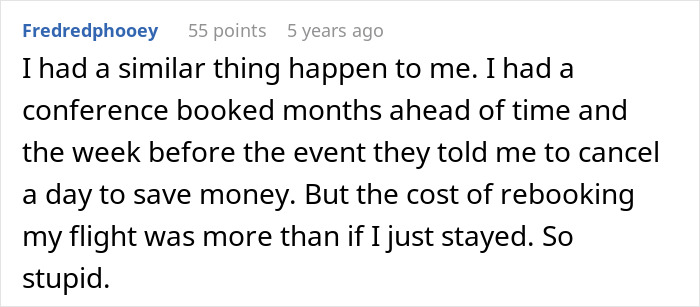

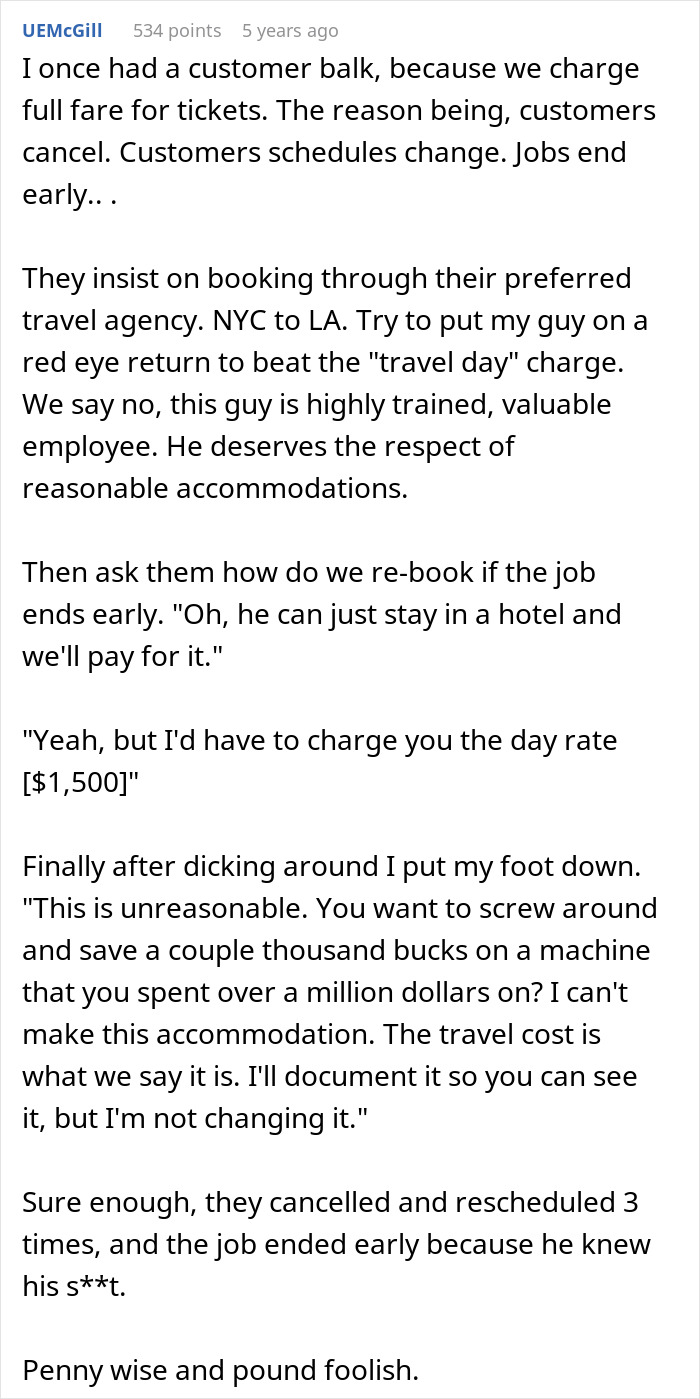
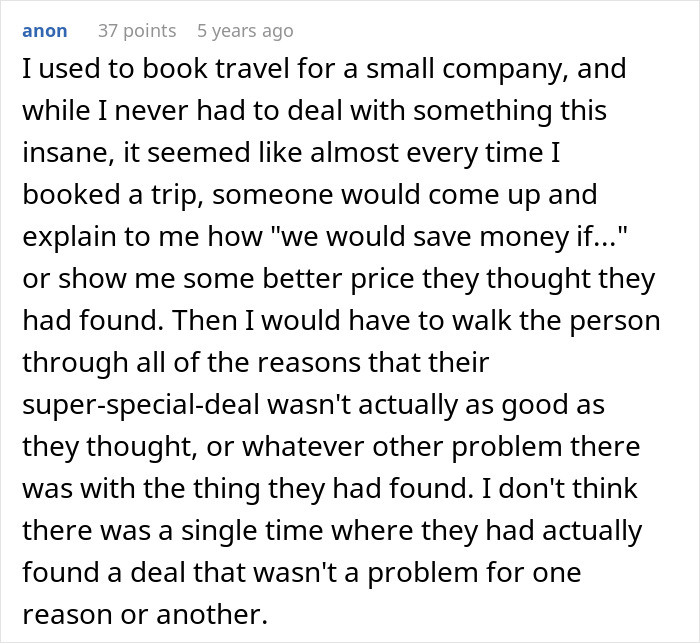
Thanks! Check out the results:Gabija Saveiskyte
Indrė Lukošiūtė
Gabija Palšytė
Work & Money